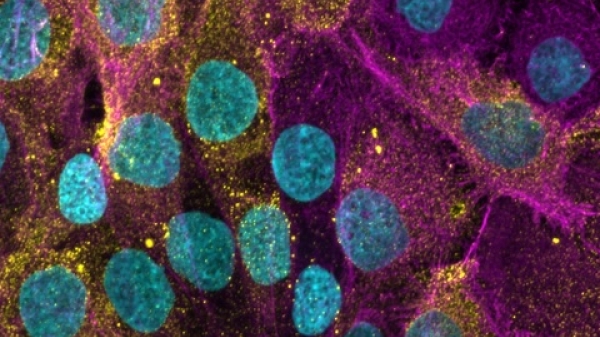Arizona State University's upcoming Health Talks event on July 18 will address how vulnerable populations are being impacted by heat across the world and how state governments are planning to deal with rising temperatures.
"Hot and Bothered: A Conversation About Heat and Health" features Patricia Solis, executive director of the Knowledge Exchange for Resilience at ASU, and College of Health Solutions Clinical Associate Professor Alicia Montalvo.
Montalvo will share some of the latest findings of her work on the impacts of extreme heat on vulnerable populations including athletes and children.
Montalvo is concerned about what climate change will do to those who are more prone to heat injuries and illness. Her work as a certified athletic trainer and injury epidemiologist led to an interest in injuries in the heat.
'Hot and Bothered: A Conversation about Heat and Health'
Join the College of Health Solutions for a webinar where they will explore the critical challenges and solutions for protecting at-risk groups during extreme heat events.
Thursday, July 18
Noon–1:00 p.m.
Register here.
“I did some reading about heat and athletes,” Montalvo said. “It mentioned climate change, and I kept seeing climate change as a recurring theme, both in exertional rhabdomyolysis (breakdown of skeletal muscles due to overexertion) and heat illness, and how all these things are going to get worse over time as climate change progresses.
“I also feel really sad about the disproportionate impact that heat has on vulnerable communities," Montalvo said. "Some people are fortunate to live somewhere with access to a lot of green space, where it can get cooler at night. But some people are locked into concrete jungles where it's going to not only be hot during the day, but those buildings and the streets are going to hang on to the heat and make it so hot at night.”
Through the College of Health Solutions, Montalvo is looking at medical records and climate records in hopes of finding a correlation and hopefully solutions.
One area of focus is working to create a new machine-learning algorithm to replace the WetBulb Globe Temperature, or WBGT, which measures heat stress in direct sunlight.
According to Montalvo, there are limitations to the WBGT.
For instance, the research behind it was conducted on military trainees in the 1950s in a humid climate, measuring the effect heat had on their bodies. Since 1956, the average world surface temperature has increased by 1.01 degrees Celsius. It also does not take into account preexisting conditions, age, race or gender.
“I think there are probably just better ways with technology and advancements that ... it's possible we can outperform the WetBulb globe temperature with machine-learning algorithms,” Montalvo said.
Another issue, Montalvo says, is there are more infants and young children these days being brought to the ER due to heat-related illness.
“It makes sense because they cannot communicate,” she said. “... They might not be able to get themselves water; they might not be able to say 'I'm hot.'"
Montalvo was awarded a grant for her work through the National Athletic Trainers Association Research and Education Foundation. This grant will allow her to continue her work looking at the association between heat and cases of exertional heat illness in high school athletes.
More Health and medicine

First 2 degree offerings from ASU Health available in fall 2025
The first degree offerings from ASU Health will help students find jobs in the modernized health care system.The one-year Master of Science in public health technology and the two-year Master of…

ASU study uses new biomaterials for wound healing
A minor cut often heals within days, vanishing without a trace. Yet, wound healing and tissue repair are complex biological processes, revealing the body’s remarkable regenerative capacity.In a new…

Moeur awardee seeks to turn passion into tangible human impact
Editor’s note: This story is part of a series of profiles of notable fall 2024 graduates.During high school, Nguyen Thien Ha Do, a graduating student in the medical studies program at the…